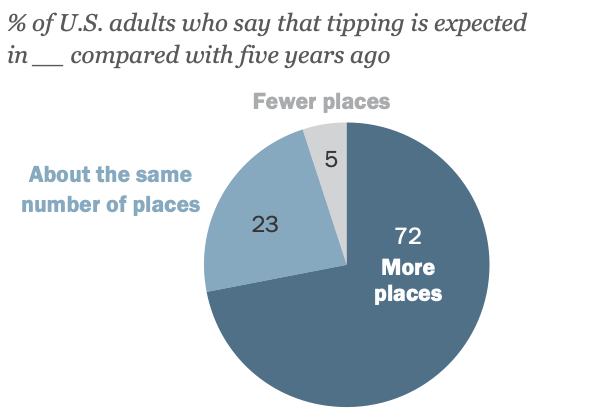ACTing Like the ACT is a Predictor for Future Success
Throughout the years, the ACT has been a principal contributor to colleges’ decisions about admitting students. Still, it is a concern that the ACT is not a valid method to test a students’ aptitude. Even now, during a global pandemic, colleges are debating whether or not to consider the ACT in college admissions, as so many students have to go through the challenge of virtual learning. Many colleges made this decision to not mandate the ACT last spring as well.
The ACT is an outdated method of test-taking and should be abolished or changed to better the mental health of students.
The ACT is a primary cause for the large amounts of stress and fear brought to students on test day.
According to education researcher Gregory J. Cizek, “Anecdotes abound describing the despair experienced by earnest students who were denied a diploma as a result of a high-stakes test,[…] frustrates the best teachers, produces gripping anxiety in even the brightest students, and makes young children vomit or cry, or both [on or before test day].”
Having one ridiculously important standardized test be taken by students is not a sound method of determining their overall intelligence.
Former Dean of Admissions for Bates College, William Hiss, says that, “The human mind is simply so complex, so multifaceted and fluid, that trying to find a single measurement tool that will be reliable across the enormous populations of American students is simply a trip up a blind alley. […] We just don’t find them reliable across [large] populations.”
The test is also an unreliable way of measuring a student’s performance through their education and even if it is reliable, do we expect kids to retain and use this knowledge in their lives? A study written by the Brookings Institution found that 50-80% of year-over-year test score improvements were short term and “caused by fluctuations that had nothing to do with long-term changes in learning.”
Additionally, the ACT and other standardized tests are not able to measure students’ qualities such as creativity, compassion, endurance, motivation, and so forth. There are so many fundamental qualities that apply to college students, within or without extra of an educational setting that matter and that cannot be tested.
Although there are many cons to the ACT and standardized testing in general, some people say there are still reasons for its use. “93% of studies on student testing, including the use of large-scale and high-stakes standardized tests, found a ‘positive effect’ on student achievement,” as was said by a peer-reviewed, 100-year analysis of testing research concluded in 2011 by testing scholar Richard P. Phelps.
But much of this positive achievement was found when students overstressed themselves with preparation. Afterward, much of that information they prepared is lost, and the actual necessary knowledge is not retained. The spike in student achievement on test day is nothing more than a false positive.
This brings up two questions: What solutions should schools and students take instead of it? What measures have been taken regarding the ACT during the global pandemic?
Frank Pignatelli, author of “Everyday Courage in the Midst of Standardization in Schools,” offers some solutions. In summary, he talks about how teachers could just choose not to give the tests to students and how parents and students can simply boycott the test, but with something as dramatic as that, it holds a lot of risk towards the school, the staff, and the students and parents. This is a more radical solution to the problem.
There must be a point of compromise.
The compromise would be of persuasion rather than demolition. Instead of trying to tell other students not to take the ACT, policy makers and students could simply try and persuade colleges of how meaningless the ACT is. If colleges ignored the ACT in admissions, the amount of students who take it would lessen dramatically, or the amount of importance and stress laid onto the ACT would lessen, which would be a benefit towards the students. College admissions would be based on the students’ yearly progress during high school.
Though, more than ever, it seems that the ACT’s importance and power is dwindling.
During the global outbreak of COVID-19, there has been more and more talk of colleges who were thinking about not including the ACT or SAT requirement for admissions.
According to the New York Times, Ivy League schools such as Harvard and Cornell have also made this decision and announced that students who choose not submit their scores will not be disadvantaged in any way because of the pandemic. It would seem, to those students dreading taking the test or having their score hinder their favorite college’s decision making, the challenges of their virtual learning might be a blessing in disguise.
Regardless of the coronavirus or not, the ACT’s everlasting negatives still linger. Taking charge and leading a situation as high stakes as this may seem scary to many at first, but just think of all the similar things that take place in our daily life. If you’re brave enough to be a hard working and responsible student living through a global pandemic, you’re brave enough to speak up, and you’re brave enough to continue.
Editorial Policy: The Norse Star strives to present the news in a fair and unbiased manner. Any column, editorial, or letter to the editor expresses the opinion of the author and not necessarily the entire staff. The staff editorial does not necessarily reflect the views of the entire staff. The Norse Star is a public forum written and produced by the students at Stoughton High School, and they are solely responsible for its content. Students, staff, faculty, and members of the community are welcome to submit letters to the editor of 300 words or less. Letters may be edited due to space limitations, obscenities, or libel concerns. Norse Star will verify the authenticity of any letters sent on the behalf of school organizations or groups. All letters must be signed and emailed to [email protected]

Senior Emma Phillips is the Norse Stars Arts and Entertainment Editor and Head Artist. Emma enjoys the dynamic the staff has with one another.
Outside...







